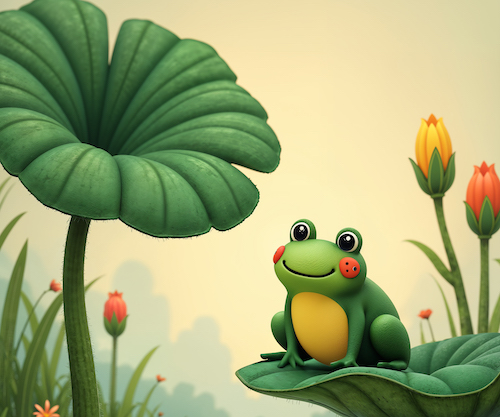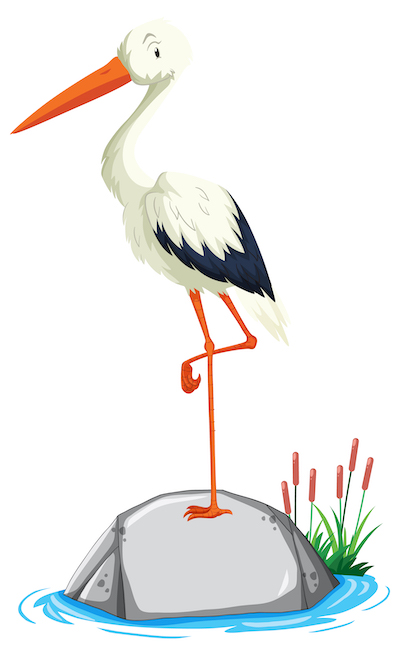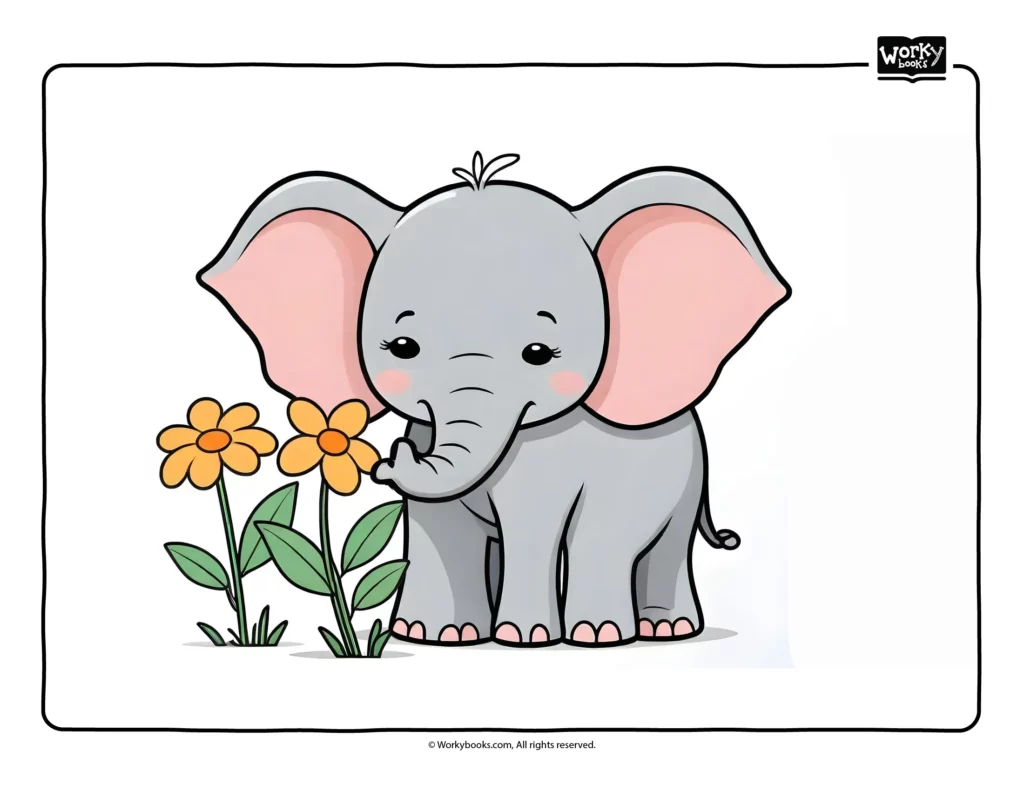The Frogs Who Wished for a King: Fables for Kids

Fables are short stories that often feature animals as the main characters and teach important life lessons, or morals, in a simple and fun way. These stories have been told for hundreds of years and are still enjoyed by children and adults today. The animals in fables talk and behave like humans, but their adventures and mistakes help us understand important values like honesty, kindness, and being careful with our choices.
One famous storyteller is Aesop, a Greek writer who lived over 2,000 years ago. His fables are known around the world for their timeless messages. Now, let’s dive into one of his classic tales!
Fables for kids:The Frogs Who Wished for a King
The Frogs were tired of governing themselves. They had so much freedom that it had spoiled them, and they did nothing but sit around croaking in a bored manner and wishing for a government that could entertain them with the pomp and display of royalty, and rule them in a way to make them know they were being ruled. No milk and water government for them, they declared. So they sent a petition to Jupiter asking for a king.
Jupiter saw what simple and foolish creatures they were, but to keep them quiet and make them think they had a king he threw down a huge log, which fell into the water with a great splash. The Frogs hid themselves among the reeds and grasses, thinking the new king to be some fearful giant. But they soon discovered how tame and peaceable King Log was. In a short time the younger Frogs were using him for a diving platform, while the older Frogs made him a meeting place, where they complained loudly to Jupiter about the government.

To teach the Frogs a lesson the ruler of the gods now sent a Crane to be king of Frogland. The Crane proved to be a very different sort of king from old King Log. He gobbled up the poor Frogs right and left and they soon saw what fools they had been. In mournful croaks they begged Jupiter to take away the cruel tyrant before they should all be destroyed.

“How now!” cried Jupiter “Are you not yet content? You have what you asked for and so you have only yourselves to blame for your misfortunes.”
The main themes of “The Frogs Who Wished for a King” include:
- The value of self-governance and freedom: The story explores this theme by showing how the frogs take their freedom for granted and only realize its value when it’s too late. Their initial discontent with self-rule is contrasted sharply with their desperate situation under the tyrannical crane.
- The dangers of desiring change without consideration: This theme is demonstrated through the frogs’ hasty wishes for a king without thinking about the potential downsides. Their impulsive desire for change leads them from a situation of freedom to one of mortal peril.
- The grass is not always greener on the other side: The fable illustrates this theme by showing how the frogs’ perception of their initial situation as boring and unsatisfactory was, in fact, much better than the alternative they thought they wanted.
- The importance of contentment: Throughout the story, the frogs’ lack of contentment with their original situation drives them to seek changes that ultimately make them worse off. This underscores the theme that being satisfied with what one has can often lead to a happier life.
- Actions have consequences: Jupiter’s refusal to help the frogs at the end of the story emphasizes this theme. The frogs must face the consequences of their choices, teaching readers about personal responsibility.
Reading Comprehension Questions:
Q1.Why did Jupiter send the crane as the second king, and how did this choice impact the frogs?
______________________________________________________________________________________
Q2. How did the frogs’ attitude towards King Log change over time, and what does this reveal about their character?
______________________________________________________________________________________
Multiple Choice Questions:
- What was the initial reason for the frogs wanting a king?
a) They were tired of governing themselves
b) They wanted protection from predators
c) They needed help finding food
d) They were seeking adventure - How did Jupiter respond to the frogs’ first request for a king?
a) He ignored their request
b) He sent them a wise frog leader
c) He threw down a huge log
d) He immediately sent the crane - What does Jupiter’s response at the end of the story suggest?
a) He regretted sending the crane
b) He believed the frogs deserved their fate
c) He planned to send another king
d) He wanted to rule the frogs himself - Which of the following best describes the theme of the story?
a) Royalty is always better than democracy
b) Change is always good
c) Be content with what you have
d) Complaining leads to positive outcomes
These questions align with CCSS.ELA-LITERACY.RL.5.2 by focusing on the story’s theme and summarizing key details from the text to support the main ideas.
Click here for more worksheets on frogs!
Answers to reading comprehension:
A1.Initially, the frogs were afraid of King Log, thinking it was a fearsome giant. However, they soon realized it was harmless and began using it as a diving platform and meeting place. This change in attitude shows their inability to appreciate the peace and freedom they had, demonstrating their short-sightedness and discontent.
A2.Jupiter sent the crane as the second king to teach the frogs a lesson about the consequences of their wishes. He wanted to show them that their desire for a more active ruler could lead to dire consequences.
Answers to Multiple Choice Questions:
1.a) They were tired of governing themselves
2.c) He threw down a huge log
3.b) He believed the frogs deserved their fate
4.c) Be content with what you have
The frogs, unhappy with self-governance, ask Jupiter for a king. Jupiter first sends a log, which the frogs initially fear but soon find boring. When they complain again, Jupiter sends a crane as their new king. The crane turns out to be a tyrant, eating the frogs. When the frogs beg Jupiter to remove the crane, he reminds them that they got what they asked for and are responsible for their situation.
The moral is “Be careful what you wish for.” Sometimes, the situation you currently have is better than the one you think you want.
The theme of the story is the danger of desiring change without considering the consequences, and the value of self-governance and freedom.



